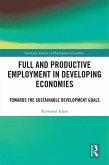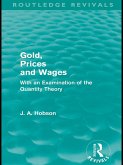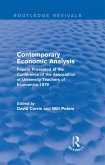
eBook, ePUB
11. Juni 2015
Taylor & Francis eBooks

eBook, PDF
11. Juni 2015
Taylor & Francis eBooks
Broschiertes Buch
A Policy Appraisal
1st ed. 2012
1. Januar 2012
Palgrave Macmillan / Palgrave Macmillan UK / Springer Palgrave Macmillan
978-1-349-32751-5
| Broschiertes Buch | ab 77,99 € | |
| Gebundenes Buch | 77,99 € | |
| eBook, PDF | 73,95 € |
Broschiertes Buch
A Policy Appraisal
2012
10. September 2012
Palgrave Macmillan / Palgrave Macmillan UK / Springer Palgrave Macmillan
978-1-137-46828-4
Gebundenes Buch
A Policy Appraisal
2012
10. September 2012
Macmillan Education / Palgrave Macmillan UK / Springer Palgrave Macmillan
978-0-230-28031-1
Ähnliche Artikel

eBook, ePUB
30. Juli 2019
Taylor & Francis eBooks

eBook, ePUB
13. November 2014
Taylor & Francis eBooks

21,95 €
Sofort per Download lieferbar
eBook, ePUB
2. Juli 2010
Taylor & Francis eBooks

eBook, ePUB
27. November 2012
Taylor & Francis eBooks



eBook, ePUB
15. Mai 2015
Taylor & Francis eBooks

21,95 €
Sofort per Download lieferbar
eBook, ePUB
11. Juni 2015
Taylor & Francis eBooks

eBook, ePUB
12. Mai 2016
Taylor & Francis eBooks
Ähnlichkeitssuche: Fact®Finder von OMIKRON
